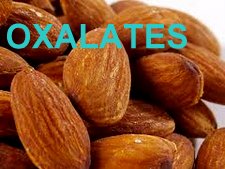Warning!! STTM is about bat-guano crazy conspiracy theorists…and more Thyroid Tidbits!
 ACELLA’S NP THYROID IS ON BACKORDER Â
ACELLA’S NP THYROID IS ON BACKORDER Â
It’s a back-handed compliment. i.e. Acella‘s brand of Natural Desiccated Thyroid has been in great demand! But…success can equal problems, because they weren’t keeping up…or that’s how we understand it. So when you go back to get a refill, the pharmacist may try to put you another brand if they are already out. So hang tight. Acella states that they will be back into better production by the end of April.
DO YOU REALLY NEED COMPOUNDED DESICCATED THYROID?
Progressive doctors have been having a love-affair with compounded medications for several years. And for some medications, as well as for patients who are sensitive or allergic to certain fillers, it makes complete sense! (Compounded means that the pharmacist “combines, mixes, or alters ingredients in response to a prescription to create a medication tailored to the medical needs of an individual patient”).
But…most thyroid patients are discovering that they really do NOT need compounded NDT and that is especially true for “slow release” compounded NDT.  First, compounded NDT is far more expensive than the prescription brands. Second, the T4 in desiccated thyroid is your “natural slow release” of T3 throughout your day. So it makes financial sense to go with the prescription brands if you have no sensitivities or problems with fillers. And even if you go with compounded….you don’t need slow-release!
YES, THE STTM WEBSITE HAS BEEN UPDATED, plus more pages!
In case you didn’t notice, there’s a new look to STTM. Part of it is because we needed STTM to be far more user-friendly on your cell phones. I think you’ll like what you see. You’ll also find links at the TOP of each page instead of to the left.
There are also new pages from the last several weeks: one on parathyroid issues, especially hyperparathyroidism (i.e. if you have high calcium levels, you need to read this page); another is an issues related to hypo landing page showing you several conditions which can outright be related to your hypothyroidism and you may not even realize it (like fibromyalgia); another about problems that can occur if you overeat high oxalate foods (as happened to ME!); how hypothyroid patients can have low stomach acid and its consequences (like acid reflux and poor absorption issues)….and you can always keep up with What’s New on STTM.
ALL THE BUZZ ABOUT MTHFR
If you haven’t heard about it, you probably will. Because lots of thyroid patients are finding themselves with a defect in a particular gene called the MTHFR, which is the acronym for “methylenetetrahydrofolate reductase” gene (methyl-ene-tetra-hydro-folate-re-duc-tase). This gene is supposed to make the MTHFR enzyme. But if there’s a defect, the enzyme doesn’t work right and you can be left with a multitude of health issues (or see them in your ancestors) including heart disease (and high homocysteine levels), breast cancer, other cancers, addictions, miscarriages, chemical sensitivities, IBS, strokes and so much more. Those with this defect can also find themselves with high levels of mercury, or iron, or other toxins. Go here to read what it’s all about.
BERBERINE. INSULIN RESISTANCE, and THYROID CANCER
Since it’s pretty obvious to me that I have insulin resistance (i.e. it takes twice as much insulin to do the job, which means more fat storage), I was pretty excited when I learned about Berberine. It’s a natural alkaloid salt found in a variety of different plants and it’s stated to make your insulin more effective, thus your blood sugar levels can come down. I notice that some folks are using it in place of Metformin, as well, and reporting better glucose levels. It’s supposedly been used for centuries in Ayurvedic and Chinese medicine.
***But there’s another interesting possibility about Berberine: studies have shown it to be effective in reducing thyroid cancer cells, here. Talk to your doctor about it before assuming you can use it for cancer in lieu of other treatments, please.
AND ABOUT THE TITLE OF THIS BLOG POST...
Bet ya didn’t know that STTM is bat-guano crazy, did ya?? lol. This misinformed comment was found as a comment of a random blog post, and tells me that some still don’t get that this isn’t about conspiracy or theory. This is about patients worldwide who have either found that T4-only meds weren’t doing the job in their own degree and kind, or….patients were getting bit in the behind years later thanks to the inadequacy of thyroxine. Even worse, doctor who have been diagnosing or treating by the TSH pituitary hormone were leaving patients sick!
So what you have on STTM is more than ten years of GOOD patient experiences, the good and the bad. LEARN from it, and expect to take it into your doctor’s office to help them catch up with us!
STTM BOOK IS COMING SOON IN SPANISH Â
First there was English, then came Swedish, then came German….and later, you’ll see Spanish! I’ll announce it when it’s out. I also plan on updating a few parts of the current revised STTM English book by Fall–just some corrections here or there. For example, the current one states that the percent saturation should be 25 – 45% for women, but we know that most women, when optimal, fall somewhere around 35% and definitely not 25%. So I’ll correct that, because somehow, it didn’t get in Addendum C of the current revised edition! Get your book here…and consider two or three, because your shipping rate is much better. Give the extras to a friend or loved one.
